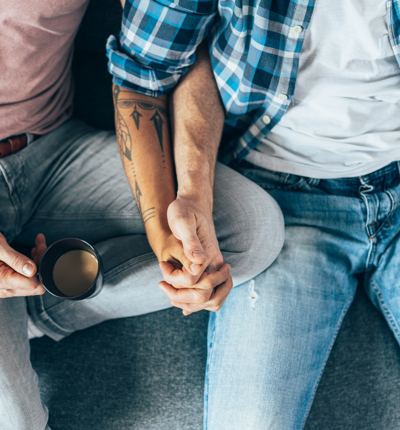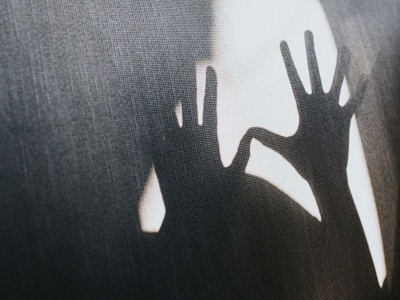
Barriers and harmful myths still prevail for LGBTQ+ survivors of abuse
As Pride month draws to a conclusion for another year, Andrew Lord, abuse claims solicitor and Chair of Leigh Day’s LGBTQ+ Committee, looks at the challenges which LGBTQ+ survivors of sexual abuse face when seeking support or reporting their abuse.
Posted on 28 June 2022
Last month the Independent Inquiry into Child Sexual Abuse (IICSA) released an engagement report which offers an insight into the unique and multi-layered barriers which many LGBTQ+ survivors of sexual abuse endure. The report draws upon experiences from LGBTQ+ survivors of abuse and it has a series of quotes throughout which offer a heart-rending insight into their experiences. The report makes for a sobering read, as it covers common myths, stereotypical representations, and the long reach of history in a widely heteronormative and cisnormative society.
The engagement report details some of the harmful myths that impact LGBTQ+ survivors, such as somebody’s sexual orientation or gender identity being formed in response to abuse in childhood. Most participants said that this misconception was commonplace, with some support professionals focussing upon sexual orientation and gender identity as opposed to the distress the survivor is experiencing. Not only would this be a significant barrier to accessing support, but it also actively challenges an individual’s self-identity in a potentially harmful way.
Another myth detailed within the report is that the survivor ‘invited’ the abuse because of their sexual orientation or gender identity, for example, some females subjected to abuse by women said that their experiences were not recognised as abuse. Stereotypical representations of LGTBQ+ people in the media were also said to feed into this myth.
On the media, it was also raised that that language of some news articles conflated sexual orientation with sexual abuse of children, by using phrases such as “gay paedophiles”. Language is important, and it is easy to understand how clumsy (at best!) wording is harmful to the LGBTQ+ community at large, but particularly so for LGBTQ+ survivors of abuse.
The continuing damaging effects of historical attitudes towards the LGBTQ+ community is also acknowledged, with some survivors speaking of the “trauma of past criminalisation of homosexuality, Section 28, the HIV/ AIDS epidemic and societal homophobia”. The report sets out how male rape was not recognised in law until 1994, and that prior to this a survivor of abuse could be prosecuted in the same manner as their abuser. Depressingly, the inquiry did hear of some male survivors who were themselves criminalised after disclosing abuse.
The inquiry also heard that widespread institutional transphobia has led to many trans victims and survivors not trusting services such as the police. Also, some participants reported that trans people are “more dependent on services like the NHS than most cis lesbian, gay and bisexual people”, and that this means they are more likely to withhold disclosure of child sexual abuse due to a concern of not wanting to be seen as ‘raising too many issues’ or being treated as ‘difficult’.
IICSA also heard that some environments are particularly hostile towards LGBTQ+ communities, including religious institutions, schools, sports, and families with strongly held religious or cultural beliefs. Understandably it can be even more difficult for survivors to speak out in those environments, and this issue is only amplified further when the abuser holds a position of standing in that community. If the abuser knows of the survivor’s sexual orientation or gender identity, then they may use that information to exploit them further.
The report says that some survivors and victims were even encouraged to not speak out about the abuse they suffered. Two victims and survivors reported “having experienced or been offered conversion therapy” (conversion therapy being attempts to change a person's sexual orientation or gender identity).
Sadly, exploitation and abuse of young LGBTQ+ people still happens. The report highlights how young LGBTQ+ people may be less able to seek out relationships and test sexual boundaries amongst their peers, and that there are also few services where young LGBTQ+ people can meet up. Some young people therefore turn to online forums and apps to explore their sexual and gender identity, and where this includes dating apps they are more vulnerable to abuse. If they do suffer abuse, barriers to disclosure include feeling pressure to come out by discussing their abuse, and some support services questioning why they were on particular apps or forums rather than focussing on the abuse.
The inquiry heard that if specialist services are offered where there is an understanding of sexuality and gender identity, LGBTQ+ victims and survivors are much more likely to make disclosures. The issue is that there is a shortage of such services which are available and/or easily accessible. Also, IICSA heard that some support organisations require guardian consent for children due to the disclosure and reporting process, which can understandably cause issues if the child is not yet ready to come out.
The report from IICSA is focussed upon engagement from LGBTQ+ survivors and therefore it does not contain recommendations; however, there are suggestions made by those taking part in the inquiry. These include support services proactively advertising their commitment to LGBTQ+ community, staff being complex trauma-informed, and the careful choice of words and terminology given the importance of terminology.
As somebody who represents survivors and who is also a proud member of the LGBTQ+ community, the engagement report makes for uncomfortable but important reading. From challenges faced by young LGBTQ+ people of today to those survivors who still feel the scars of the past attitudes against their community, there is clearly so much more that must be done to support survivors and prevent future abuse.
The Survivors’ Network provides a list of LGBTQ+ resources which may be helpful to those looking for support.




